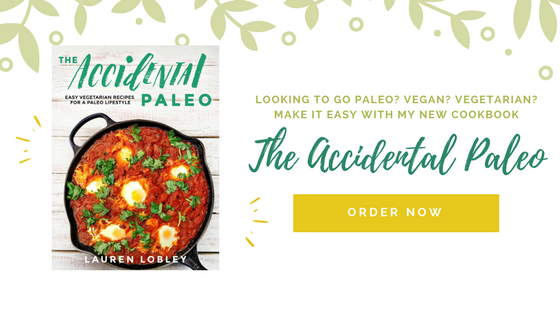
Exploring the double edged sword of social media (and what I did when my friend asked me, “Why do people post on social media? Is it for validation?”)
Last month, I ran into someone I hadn’t seen in awhile, and I remarked that, “Wow! Your business seems to be blowing up right now! Good for you!”
To which she replied, “Does it? Or is that just what I’m having you believe on social media?”
My friend was right: I hadn’t seen her in a while, but I had been keeping up with her posts on Facebook. Based on no other evidence but for the posts on her wall, it looked like her business was thriving.
Ah, social media. The double edged sword, the keeper of our dreams, the greatest illusionist.
I awkwardly assured my friend that I thought her business was amazing, and that surely it would pick up soon.
This conversation, though, has been creeping up for me a lot lately. I even touched on it in a post a few months ago, but it begs a deeper look.
A few months prior to this conversation, I was at my friend’s house when she asked me point blank, “I don’t understand what the deal is with people posting on social media. Like, I really don’t get it. Is it for validation?”
I, on my high horse, answered proudly, “Well, a lot of the time, Ted (my husband) and I do it for business purposes, and it’s also a great way to keep my long distance friends and family up to speed with the goings on of my life. But a lot of us also do it for validation. I certainly do. But I actually just recently wrote a post called Facebook Truth, and along with it, a photo of me without makeup and not looking very good, and called myself out…” and bla bla bla…..bla….bla.
I felt so proud of myself for having posted one time (yup, one time) about something that wasn’t so picture perfect without giving a lick of consideration to the amount of posts I had posted that depicted a shinier, better-version-of-myself, snapshot-of-a-moment-in-time (and a good angle) of what probably (read: almost certainly. Ok. Definitely) wasn’t the whole truth.
She said, “Ok, but why even post that? What’s the point?”
Touche. Why did I feel the need to post something about Facebook truth? Was it so that people could commend me? So people could say, “Look at Lauren! She’s so brave! She’s so honest!”? Wouldn’t it have made more of an impact if I had just posted the not-so-beautiful pic without a back story? To have just let it stand on its own?
Or, as my friend suggested, not posted it at all?
Well, I think the answer is a bit of yes, and a bit of no. One of the things I love about social media is the ways in which is easily allows us to start a conversation, to stand up for each other, and to make a statement, which is what I was hoping to do with my Facebook Truth post. But when it crosses over into validation territory (and when it crosses into hateful and hurtful), that’s where things start to go awry.
We are in brand new territory in this social media landscape. I certainly am not immune to the pull. I’m not immune to the high I get when someone likes or comments on a photo. I like it. But I also hate it. It has become the source of one of my greatest distractions. It has pulled me away from myself in ways I never imagined it could. In many ways, I turn to social media for validation. And I hate that.
So, what do we think? Why do we have such a strong need to validate our lives by posting photos of ourselves doing great things on social media?
Is it just me?
I talk a big game and get mad at my husband when he can’t tear himself away from his phone, but I have the bug too. I’m just as guilty. My phone is the last thing I look at before I go to bed, and the first thing I look at when I wake up in the morning. While the tea is boiling, I check my phone. When I get downstairs after Madison goes down to sleep, I stop to check my phone before doing anything else. Granted, it’s also to check for texts and calls I missed because I don’t look at my phone when I’m with Madison, but still! Anytime I’m feeling like distracting, my phone is the recipient of my wandering attention. Why can’t it be meditation? A book? Staring off into space? Do any of us even do that anymore???
Aside from the addictive, validating side of social media, there is another facet of this conversation that I want to bring into the mix: how social media creates a false sense of closeness.
Social media is an amazing tool. But like anything, it is also a double edged sword. Too much of a good thing can begin to cause problems.
I have found social media to be a great way to stay connected to people I wouldn’t otherwise be able to, given that I live in LA, my parents and sister live in Montreal, my brother lives in BC, my extended family lives in Toronto and Calgary, and my friends live in every one of those places, plus overseas. Through their status updates and photos, I can stay up to date on what’s going on in their lives, and effectively not feel like I’m missing out too terribly (though nothing can replace being in someone’s physical presence).
In many ways – especially in this one I just described – social media has been a blessing. But I have also found that it can turn on a dime. Specifically, I find that it can give us a false sense of closeness to people. I always find it tough when I travel home to Montreal, because thanks to my big mouth on social media, everyone knows I’m there – even the people who I’m more or less just friends with on social media. I would love to meet up with each and every one of those friends in real life. We’ve been interacting on social media – and genuinely care about each other (at least, I think we do). But in a different kind of way. An online interaction is way different than a close personal one. Because I may have 1200 friends on Facebook. But there is no way I could maintain a close, bonded relationship with that many people in real life, no matter how much I may want to. All I can do is scroll through their feed, like their pictures, comment where it’s appropriate, and send them well wishes. And that has to be enough. Because I don’t have more than that to give.
As much as I know and am aware of this, I have experienced the hurt of what it feels like when you realize you aren’t as close to someone as you thought you were, and all because of this false sense of closeness on social media. Some of my friends who don’t live close have come to visit LA, and didn’t call me to tell me they would be here. For some, I don’t mind. But for others, it hurts! I realize when this happens that we aren’t nearly as close as I presumed we were, and I think a lot of the time, social media is to blame, “But I know what your kid ate for dinner last night! I know when she took her first steps! I know your birth story!” and bla bla bla. We put our lives out there – myself included – and it creates a sense of connection with people. And sometimes, this connection is imaginary, based on nothing more than a series of posts, likes, and comments that we mistakenly take for a deep relationship.
To take this even further (and then I’ll stop, I promise), I know someone who was going through a bit of a tough time with her spouse, and you could tell on her social media feed. Naturally, some friends started reaching out via text, saying that they noticed an absence of her husband in her posts, and wondering if everything was ok. My friend was mad because she thought, “What business is it of theirs?” To which I responded, “Well, anytime you post something on social media, aren’t you inviting comment? Aren’t you inviting curiosity? If a person had reached out saying oh my gosh, I love your new haircut, may I please have your stylist’s number, wouldn’t you be flattered? The motivation and reason for their reaching out is the same as the one for asking if everything is ok.”
But she said, “We’re not close enough for them to be asking me about this.” To which I again pushed back, “But you keep posting pictures without your husband, which is in stark contrast to what you used to post. So doesn’t that kind of make it public information?”
(I don’t think I was her favorite person that night)
Posting on social media is effectively like having a magazine or newspaper article being written about you. You post something, and voila – you have an instant audience to listen to your rant or to love your photo. So we have to be careful about what we post, because it can give people a false sense of being close enough to you to ask, “What’s up with that photo?” How is that any different than asking, “I saw that newspaper article about you and insert-question-or-compliment-here”?
At the end of the day, when it comes to social media, we have to be careful what we share with the world. We have to be careful to use it as a tool, and to pull ourselves back when we start relying on it for more. We have to be careful to own our posts, to know that it may cause people to feel closer to us than they actually are. And that may cause you to pause long enough before you ever post anything else to ask, “Is this for everyone? Or should this really just be for my close friends and family? Do I want to answer questions about this? Is this really anyone else’s business?” And to circle back to the beginning of this conversation, we must also ask ourselves, “Why am I posting this at all?”
It’s for you to decide. Just know what you’re doing, why you’re doing it, and where you stand. You’re only job from there is to be willing to accept the consequences.
Your friend with an admittedly unhealthy relationship to social media (and yes, I’m working on it),
Lauren
xoxo








Tilita
August 30th, 2017 16:29
Mmm, such a good topic to dissect! And those are the perfect questions to ponder on that you asked at the end. Educating. Advocating. Inspiring. Empowering. Oh, and having fun! These are some of my answers ;^)